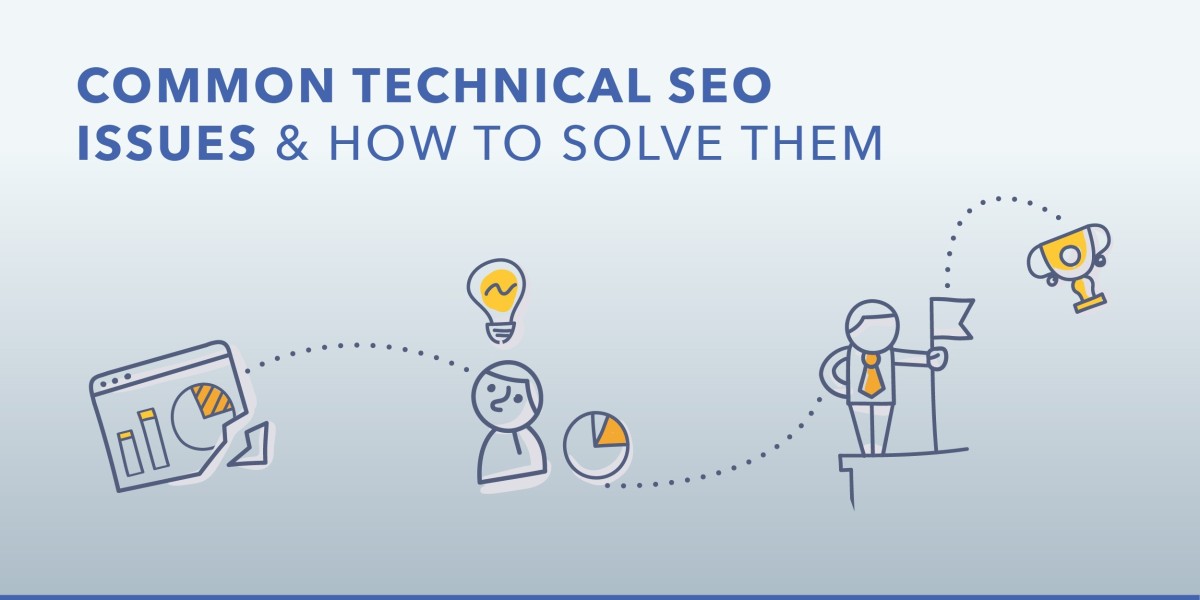What Are Common Technical SEO Issues Affecting Site Crawlability and How Can They Be Fixed?
Search engine optimization (SEO) plays a critical role in improving a website's visibility on search engine results pages (SERPs). However, no amount of keyword optimization or content strategy will help if search engines can’t effectively crawl and index your site. This is where technical SEO becomes crucial.
In this article, we will explore some of the most common technical SEO issues affecting crawlability and how you can fix them. By understanding these challenges and seeking assistance from a technical seo agency, you can improve your website's search engine performance and visibility, especially for complex e-commerce platforms.
Robots.txt File Misconfigurations
One of the most frequent issues that can hinder a website’s crawlability is an improperly configured robots.txt file. The robots.txt file is responsible for instructing search engine bots on which pages they can or cannot crawl on your site. If misconfigured, it can block essential pages, preventing search engines from indexing your entire site or important sections.
How to Fix
To resolve this issue, ensure that your robots.txt file is properly configured. Double-check the directives to confirm that critical pages such as product listings or service pages are not being blocked. If you are uncertain about your file setup, consult with a technical SEO agency to audit and optimize your robots.txt configuration.
Crawl Budget Issues
Crawl budget refers to the number of pages a search engine will crawl on your site during a given session. Large e-commerce websites with thousands of product pages often encounter issues with crawl budget allocation. If too many low-priority pages are indexed, important product or category pages may be missed or crawled less frequently.
How to Fix
Optimizing your crawl budget is essential for technical SEO for e-commerce sites. One way to address this is by ensuring that only high-value pages are crawlable. Use tools like the noindex tag for thin content pages or irrelevant archives. You can also set crawl rate limits in Google Search Console. Working with experienced technical seo agencies can ensure that your crawl budget is allocated efficiently, focusing on pages that matter most to your business.
Duplicate Content
Duplicate content is a common issue, especially for e-commerce websites. If your website has multiple versions of the same content—such as product listings with slight variations in size or color—it can confuse search engines, which may struggle to decide which version to prioritize.
How to Fix
The best way to resolve duplicate content issues is by using canonical tags. A canonical tag informs search engines about the "main" version of a page, ensuring that only one version gets indexed and avoids any penalties for duplicate content. Technical SEO agencies are skilled at identifying duplicate content issues and implementing canonical tags to preserve your site's SEO integrity.
Broken Links and 404 Errors
Broken links and 404 errors are problematic for both user experience and crawlability. When search engine bots encounter a broken link, they can’t access the intended content, which negatively impacts your site's crawl efficiency and can lower your rankings. Too many broken links also reflect poorly on your site's authority and reliability.
How to Fix
Conduct regular site audits to identify and fix broken links and 404 errors. Tools like Google Search Console can be used to monitor and address any issues promptly. For e-commerce websites, ensuring that discontinued product pages have proper redirects in place is crucial to maintaining a smooth user experience and crawlability.
Slow Page Load Times
Site speed is not only important for user experience but also impacts crawlability. When pages load slowly, search engines may not crawl all of your content, which means key pages may not get indexed. Google has made it clear that page load time is a ranking factor, and slow-loading pages will be deprioritized in SERPs.
How to Fix
Optimizing your site for speed involves several tasks, such as compressing images, minifying CSS and JavaScript files, enabling browser caching, and improving server response times. technical seo agencies use specialized tools to identify slow pages and recommend strategies to improve performance. For e-commerce sites, this is especially important since product images and scripts often cause delays.
Poor XML Sitemap Structure
An XML sitemap is a roadmap for search engines, guiding them to the most important pages on your site. A poorly structured XML sitemap can hinder crawlability, especially if it includes low-priority pages, duplicates, or broken URLs. A comprehensive and well-structured sitemap ensures that search engines can efficiently crawl and index your site.
How to Fix
Regularly review your XML sitemap to ensure it is up-to-date and includes only relevant pages. Avoid listing pages that are blocked by the robots.txt file or marked with noindex tags. Submitting your sitemap to Google Search Console ensures that search engines have the latest version.
JavaScript Rendering Issues
Modern websites, especially e-commerce platforms, often rely on JavaScript for dynamic content and user interactions. However, search engines may struggle to render JavaScript-heavy pages properly, leading to crawlability issues. If search engine bots cannot execute JavaScript, they may not be able to access or understand the page’s content.
How to Fix
To resolve JavaScript rendering issues, consider implementing server-side rendering (SSR) or pre-rendering. This ensures that search engine bots can access all content, regardless of whether it’s JavaScript-based. Alternatively, use progressive enhancement, which provides a basic HTML structure that search engines can crawl before any JavaScript elements are loaded.
Incorrect Use of Hreflang Tags
For businesses with multiple language or regional versions of their site, hreflang tags are crucial for directing search engines to the appropriate version of each page. However, incorrect implementation of hreflang tags can cause confusion, leading to duplicate content issues and crawl inefficiencies.
How to Fix
Ensure that hreflang tags are correctly implemented across all relevant pages. The tags should indicate both the language and the region for which the content is intended (e.g., en-us for English content targeting the United States). Tools like Google Search Console can help you monitor any issues related to hreflang tags.
Canonicalization Issues
Incorrect canonicalization can cause major crawlability issues, particularly for large e-commerce websites with multiple product variations or categories. Without proper canonical tags, search engines may index multiple versions of the same page, diluting your SEO efforts and wasting crawl budget.
How to Fix
Always use canonical tags to point search engines to the preferred version of a page. This is particularly important for e-commerce websites with similar product pages or category filters. Canonical tags prevent search engines from indexing duplicate content and help consolidate your SEO value.
Conclusion
Crawlability is the foundation of any successful SEO strategy, particularly for complex e-commerce websites. Common issues like misconfigured robots.txt files, crawl budget misallocation, duplicate content, and JavaScript rendering problems can all prevent search engines from fully understanding and indexing your site.
Partnering with a technical SEO agency can help you resolve these crawlability issues, ensuring that search engine bots can efficiently access your content and improve your rankings. By addressing these key challenges, you can enhance your website’s visibility, drive more organic traffic, and ultimately increase conversions. Whether you're optimizing for technical SEO for e-commerce or maintaining a smaller site, staying on top of these factors is essential to achieving long-term success.



